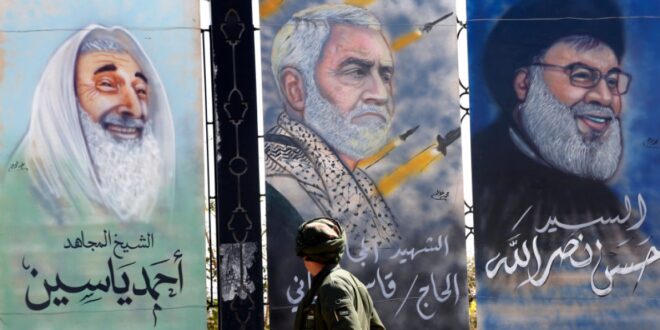Shukr reportedly serves on Hezbollah’s highest military body, the Jihad Council, and has been involved in assisting Hezbollah fighters and pro-Assad forces
On Tuesday night, Israeli warplanes launched an airstrike on the southern suburb of Beirut, near Bahman Hospital in Harat Hreik, killing at least two. The strike appeared to target Fuad Shukr, a senior military figure in Hezbollah.
Initial reports suggest the assassination attempt may have failed, and Reuters, quoting security sources said the target has survived.
According to Hezbollah’s Al-Manar TV, the strike was conducted using a drone, which fired three missiles. The Israeli military stated that the airstrike targeted the commander responsible for the Golan attack, while Israel’s Channel 12 claimed that Hezbollah official Fuad Shukr was the intended target.
Hezbollah has not yet released a statement confirming the identity or status of the target.
Fuad Shukr is on the U.S. most-wanted list, with the government’s Rewards for Justice program offering up to $5 million for information leading to his capture.
Shukr, also known as Hajj Mohsen, is described as a senior military advisor to Hezbollah’s Secretary-General Hassan Nasrallah, who has been designated by the U.S. as a leader of a foreign terrorist organization.
Shukr reportedly serves on Hezbollah’s highest military body, the Jihad Council, and has been involved in assisting Hezbollah fighters and pro-Assad forces in the Syrian civil war. He was also closely associated with the late Hezbollah commander Imad Mughniyeh (assassinated by the USA and Mossad in Damascus) and played a pivotal role in the October 23, 1983, bombing of the U.S. Marine barracks in Beirut, which resulted in the deaths of 241 American service members and injured 128 others.
On September 10, 2019, the U.S. State Department designated Shukr as a Specially Designated Global Terrorist under Executive Order 13224.
Earlier, on July 21, 2015, the U.S. Treasury Department had sanctioned Shukr under Executive Order 13582 for his activities on behalf of Hezbollah. As a result of these designations, all of Shukr’s assets and interests in assets under U.S. jurisdiction are frozen, and U.S. persons are generally prohibited from engaging in transactions with him.
The U.S. government has offered a reward of up to $5 million for information on Shukr, due to his senior advisory role on military affairs to Hezbollah’s leadership and his alleged involvement in past attacks on American interests, including the 1983 bombing of the U.S. Marine Corps barracks in Beirut.
 Eurasia Press & News
Eurasia Press & News




